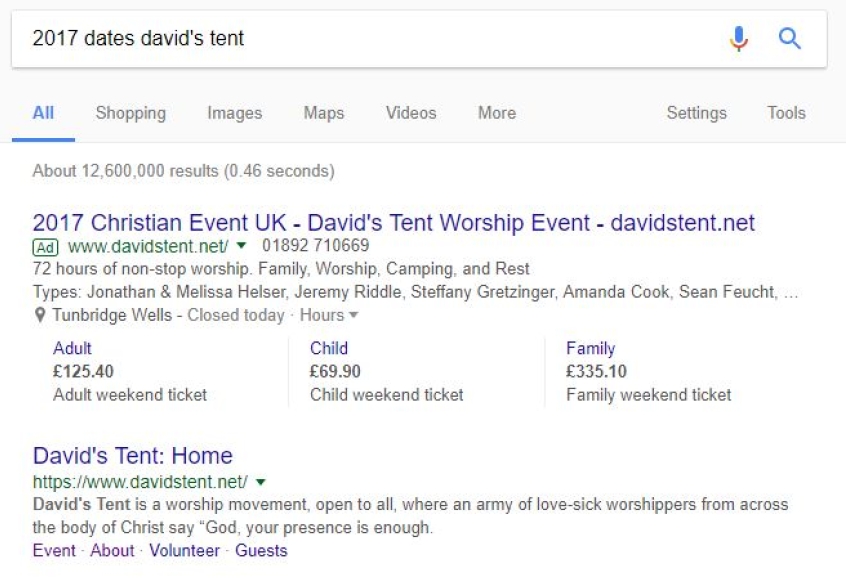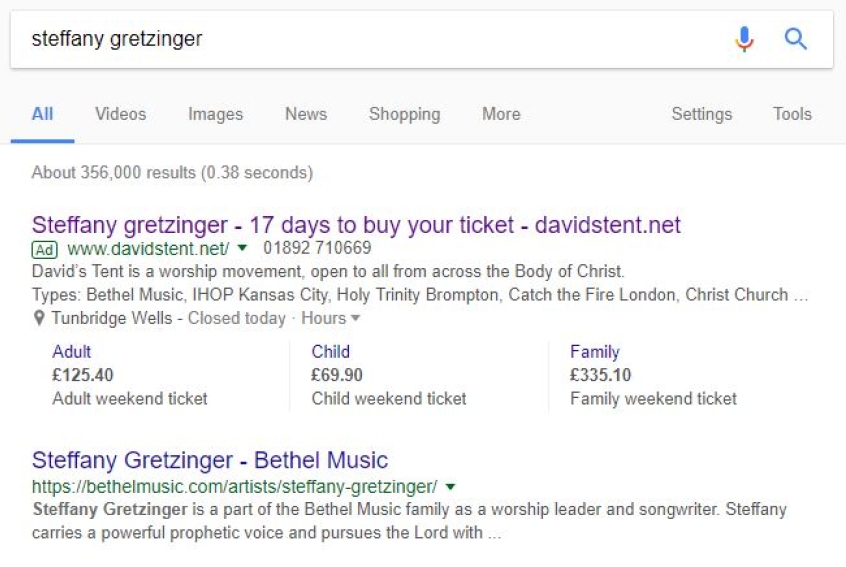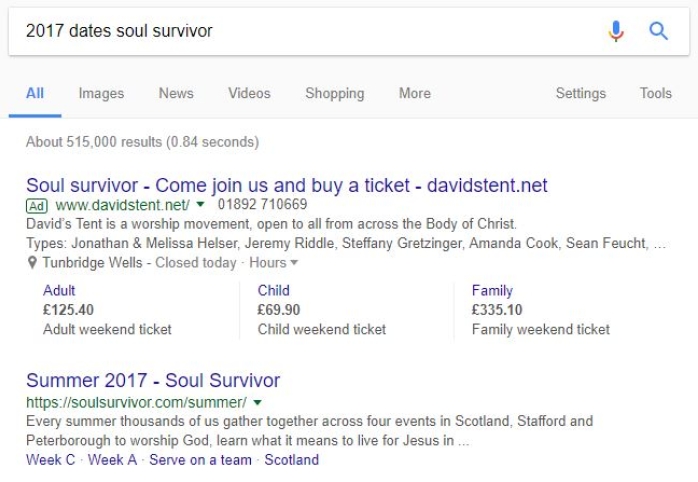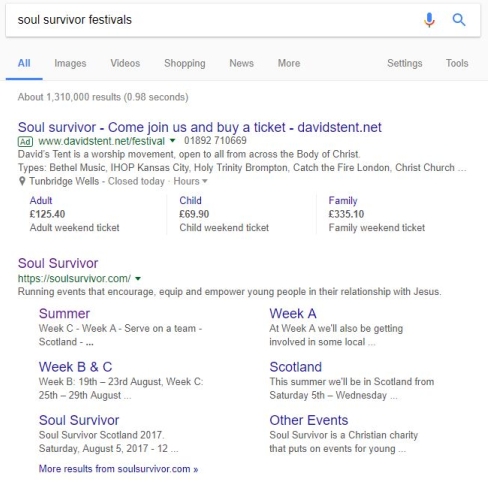
New entrants to a crowded marketplace always face a struggle to establish themselves.
And summer Christian festivals, with a total attendance of hundreds of thousands of people, are not immune to the hardships of fierce competition.
Now David's Tent, a five-year-old charismatic conference in Sussex, has bought Google AdWords for Soul Survivor, a major youth festival going through a difficult transition.
The marketing technique, seen as ethically dubious by some digital experts, means that if a potential festival-goer asks Google for 'Soul Survivor dates' or equivalent searches, it is David's Tent's website that comes top of the results.
It comes as Soul Survivor, which began in 1993 with less than 2,000 attenders and has grown to 26,000 last year, is entering a vulnerable period. The decision to move location from the Bath and West Showground in Somerset to Peterborough is a major financial gamble – a move by Greenbelt from Cheltenham to Boughton House saw numbers crash.
The AdWords technique was used by UKIP during the last general election to divert searches for the Conservative Party to its own website. However, Bex Lewis, a lecturer in digital marketing at Manchester Metropolitan University, told Christian Today there were questions around the extent to which it was ethical.
'Within the marketing world, it is seen as a legitimate practice to piggy-back on the brand equity of competitors,' she said.
'In many ways, as a new festival, it makes sense to target those who are likely to be in the right market, but as some big brands have sued those who have done something similar, there is a question as to whether this capitalises upon the brand of others without returning anything – and whether as Christians we should be held to a higher standard.'
Other online marketing experts are divided as to the ethics of the technique with one telling Christian Today it is a 'perfectly normal commercial activity' and others questioning whether Christians should be above directly targeting each other.
David's Tent did not respond to requests for comment.
A spokesman for Soul Survivor said they were aware of the situation but also declined to comment.
The widely received advice from digital experts is if you are going to buy Google AdWords for your rivals' names, you should also buy your own so you can't be a victim of your own tactic. The advice is not lost on David's Tent's marketing strategy as it has done exactly that.

It has also bought the Google Ad words for several of its high-profile guests attending this year so, for example, if you search for Bethel Music's Steffay Gretzinger, a top worship leader from the US, it is David's Tent's website that once again comes top.

But David's Tent may not be the only one to target Soul Survivor's vast customer base.
Newday, a more theologically conservative but equally charismatic youth festival linked with the Newfrontiers church which this year overlapped with Soul Survivor, offered discounts to newcomers.
Newday did not respond to requests for comment.
The evidence of competition comes as New Wine joined the Keswick Convention, Creation Fest, Big Church Day Out, Spring Harvest, Word Alive and around 20 other Christian festivals representing more than 100,000 people this year as part of a unity campaign called '17.21'.
The title references Jesus' prayer in John's gospel asking 'may they all be one that the world might believe' and was billed as 'an unprecendented display of evangelical unity across the UK'.
Paul Harcourt, New Wine's national director, told Christian Today unity was a special theme for this year.
'There's always a danger with conferences in a crowded marketplace that we could differentiate ourselves from each other and maybe we might even be in competition. We wouldn't think that but it can seep into the soul if we're not careful.
'So we have made a definite commitment. We are not in competition. We bless each other. We honour each other.'
But despite Harcourt's assurances, in a shrinking market of evangelical festival goers, competition is arguably alive and well.















